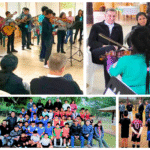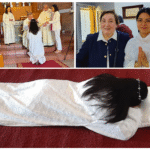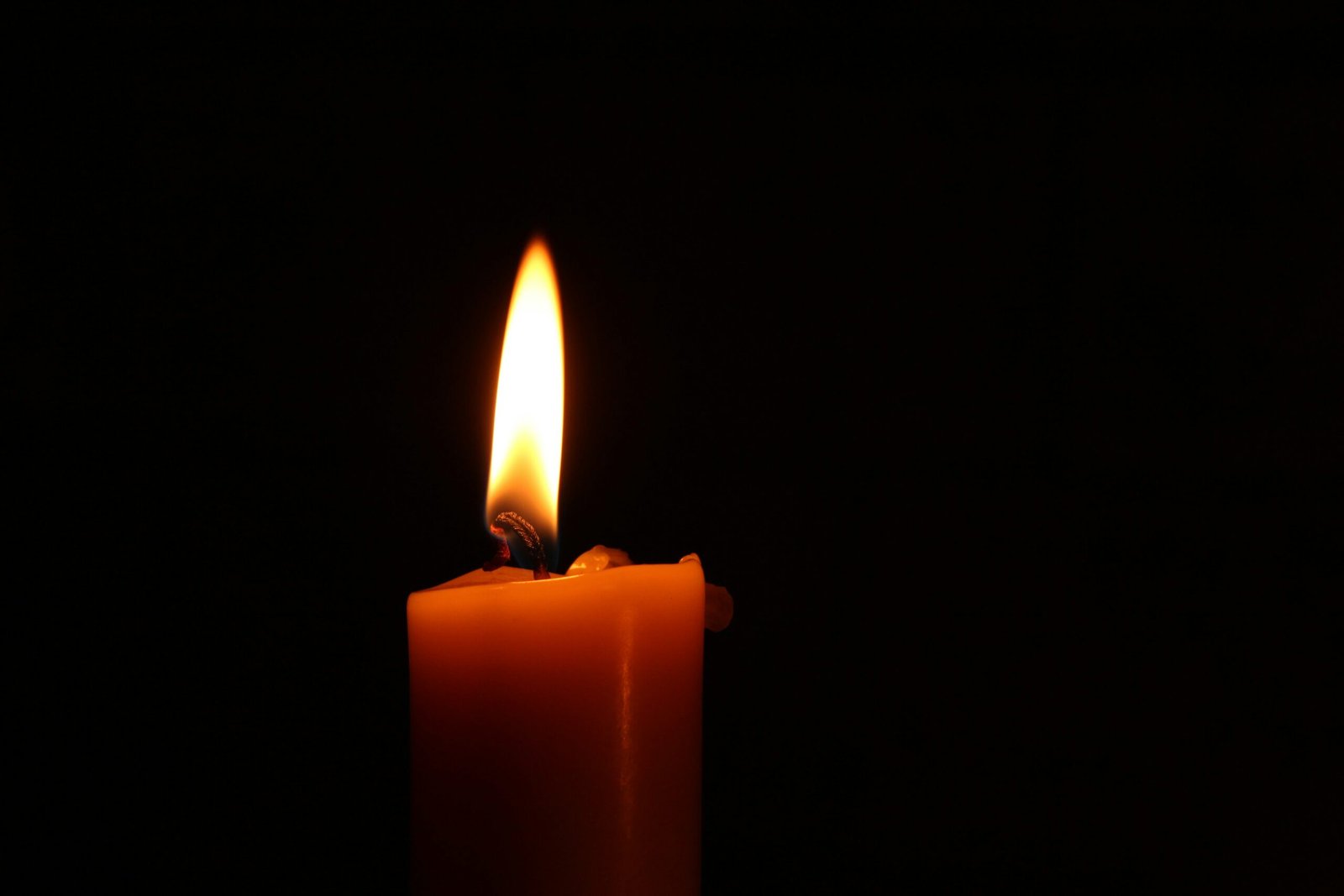
Gospel according to Saint Matthew 21,33-43:
Jesus said to the chief priests and elders of the people, «Listen to another example: There was a landowner who planted a vineyard. He put a fence around it, dug a hole for the winepress, built a watchtower, leased the vineyard to tenants and then went to a distant country. When harvest time came, the landowner sent his servants to the tenants to collect his share of the harvest. But the tenants seized his servants, beat one, killed another and stoned another. Again the owner sent more servants, but they were treated in the same way. Finally, he sent his son, thinking: ‘They will respect my son’.
»But when the tenants saw the son, they thought: ‘This is the one who is to inherit the vineyard. Let us kill him and his inheritance will be ours’. So they seized him, threw him out of the vineyard and killed him. Now, what will the owner of the vineyard do with the tenants when he comes?». They said to him, «He will bring those evil to an evil end, and lease the vineyard to others who will pay him in due time». And Jesus replied, «Have you never read what the Scriptures say? The stone which the builders rejected has become the cornerstone. This was the Lord’s doing; and we marvel at it. Therefore I say to you: the kingdom of heaven will be taken from you and given to a people who will yield a harvest».
The Time of the Fruits
Luis CASASUS President of the Idente Missionaries
Rome, October 08, 2023 | XXVII Sunday in Ordinary Time
Is 5: 1-7; Flp 4: 6-9; Mt 21: 33-43
Let us begin with a bold assertion: Behind every sin, there is an act of omission. This seems, at least, probable:
– When we slander someone or make impertinent remarks, we have NOT done a minimum of reflection beforehand.
– When Adam and Eve allowed themselves to be seduced by the devil, they did NOT go to Yahweh to express their surprise at the evil one’s invitation.
– When we succumb to a “small” temptation against poverty, chastity or obedience, we did NOT consider first the effects on the lives of others.
In fact, in today’s Gospel, Jesus tells us that, although the crime of the vinedressers was appalling, it all began because “they did not pay the fruits in due time”, an omission that, in principle, could have had a negotiated settlement.
But the First Reading already tells us what Yahweh’s expectation of his vineyard is, which is the chosen people, the privileged (the high priests, the elders…us): I expected it to yield good grapes; why did it yield sour grapes?
It is not enough to believe and say that we are children of God. This is not an honorific title; the son has a mission, which is to administer what the Father esteems. The image of the vineyard is carefully chosen, and it is not new, as we see in the text of Isaiah 29 centuries ago. The vineyard bears fruit, an expected fruit. It cannot be barren or produce sour grapes. A sinless moral life is only the starting point, a necessary condition to bear the fruits demanded by the Gospel Spirit. According to the famous text of St. Paul:
But the fruit of the Spirit is love, joy, peace, forbearance, kindness, goodness, faithfulness, gentleness and self-control. Against such things there is no law (Gal 5:22-23).
In this regard, two remarks:
* ALL these fruits have immediate relation to our neighbor.
* There is nothing that can prevent them from being born, nor that can destroy them.
That explains the wrath of the owner of the vine, which is drawn with typical oriental vivacity; although it is not a threat of what our heavenly Father will do, it illustrates very clearly the fact that it is a very serious omission, similar to the one mentioned in the First Reading, describing later the terrible punishment he will receive: I will take down the hedge of that vineyard, that it may serve as pasture; I will break down the wall thereof, that it may be trodden under foot. I will lay it waste: it will not be pruned or weeded, brambles and thistles will grow; I will forbid the clouds to rain on it.
This severity contrasts with the compassionate tone of Isaiah himself, when he speaks of other sinners, authors of shameful faults:
Those who are of a perverse spirit will receive understanding, and the murmurers will accept to be instructed (Is 29: 24).
Of course, as St. Luke tells us (16: 19-31), the punishment of the rich man who was feasting and of whom no sin is mentioned was terrifying, because of his “little omission”; not giving a few crumbs to poor Lazarus.
So, the Gospel teaches us that, with or without visible consequences, we commit omissions that are much more serious than the faults of prostitutes and publicans: we do not bear fruit, the expected fruit.
—ooOoo—
What we find difficult to understand is that the effort to bear the fruits that are signs of God’s presence in us…frees us from the slavery of the world and the self. Indeed, there is no third way, no escape from the dilemma: either we live our mission as stewards, or we harm others, in many ways, like the murderous vinedressers.
We are stewards; we have been created to manage an inheritance, a wealth with which we can live happily on condition that we are not too insensitive.
What is the starting point for an administrator? I remember that our Father and Founder gave us a very simple example, recalling his work in the Postal Service: As soon as we arrive, we have to investigate what we have in our hands, everything that has been entrusted to us. It seems clear that the vinedressers in the parable made their first mistake here. Evidently, a good vineyard was something precious, of great value, as many texts of the Bible show, but they did not want to go further in their reflection, they did not meditate on what that vineyard represented for its owner… nor on what it meant for them to have been entrusted with its care.
Once again we feel ourselves reflected in this unconscious and ruthless group of vinedressers: First of all, we do not recognize that we have been chosen, called for some reason that we do not fully know and, consequently, we believe ourselves to be the authors and owners of our life.
That’s what those farmers were convinced of and… so are we. Even today we have created arguments to prove it to ourselves. Today’s cheap psychology, which is also good business, seeks to convince us that neuroscience now allows us to know and control the relationship between thoughts and emotions, freeing us from the old paradigms that our ancestors instilled in us… and thus be masters of destiny and even become billionaires (if anyone wants a 600-page, $36 book that explains it very well… I will gladly give it to you).
It is curious how these vulgar ideas contrast with the reflection of the great Isaac Newton: If I have seen further, it has been by standing on the shoulders of giants.
But, from a spiritual point of view, the starting point is that we do not realize, we have not made an inventory of what we have on our hands. To give a positive and stimulating example, a young man who was recently invited to one of our residences to share lunch, left delighted, happy and grateful, without us having done anything particular or celebrated any feast or birthday… This – thank God – often happens in our missions around the world. But are we aware that we can transmit peace and serenity with small gestures, sharing a meal… or a few crumbs, with so many lonely Lazarus, destitute or well off, young or old?
As we mentioned earlier, the second aspect, complementary to this awareness of being stewards, is to understand how the owner of the vine appreciates his property, his treasure, each of his children.
Here is a fable to highlight that this call to be stewards is a profound intuition present in all spiritual traditions.
A Sufi story tells of a man who prayed continually for the wisdom he needed to succeed in life. One night he dreamed that he went into the forest to attain knowledge. The next morning, he went into the forest and wandered for several hours looking for some sign that would provide him with answers. When he finally stopped to rest, he saw a legless fox lying between two rocks in a cool place. Curious to know how a legless fox could survive, he waited until sunset, when he noticed a lion approaching and placing meat before the fox.
Ah, I get it, the man thought. The secret to success in life is to trust God to take care of all my needs. I don’t need to provide for myself. All I have to do is surrender totally to my all-sustaining God. Two weeks later, weakened and hungry, the man had another dream. In it he heard a voice saying to him, You fool. Be like the lion, not like the fox.
Christ, with the three parables of the vineyard of the last three Sundays, makes an effort to make us understand our condition as privileged stewards, to whom God the Father gives all his trust.
I have never seen better reflected in the content of these parables than in what Fernando Rielo calls the Beatific Supplication, our continuous experience of how the Holy Spirit asks for our help and offers his company to remind us that we will never be alone and thus give us a peace that cannot be achieved by our best efforts. This is what St. Paul proclaims in the Second Reading, where he speaks to us of our supplication, which is an echo of that of the Holy Spirit and its fruit of peace: In everything, by prayer and petition, with thanksgiving, make your requests known to God. Then the peace of God that surpasses all understanding will guard your hearts and minds in Christ Jesus.
Many of us prefer to work for ourselves, building our Tower of Babel, or simply do nothing. One of these two attitudes was undoubtedly that of the murderous vinedressers in the parable. In either case, omitting service leads to violence, be it verbal, physical, psychological or of any kind. And, at the same time, to a total sterility, to the impression of an empty life, spoiled like an abandoned vineyard.
And let us not forget the end of the parable; neither the betrayal of the vinedressers, nor the murder of his Son, prevent God the Father from going ahead with his plans: He will give the vineyard to others who will bear fruit in due time.
_______________________________
In the Sacred Hearts of Jesus, Mary and Joseph,
Luis CASASUS
President













